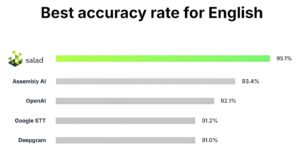Reasons Behind the Significant Decline of AI-Centric Semiconductor Companies: Taiwan Semiconductor Manufacturing, Broadcom, and Marvell Technology
Recent Decline in AI Semiconductor Stocks
Shares of major semiconductor companies involved in artificial intelligence (AI), such as Taiwan Semiconductor Manufacturing (TSM), Broadcom (AVGO), and Marvell Technology (MRVL), experienced significant declines recently. As of midday Wednesday, these stocks were down approximately 4.5%, 4.3%, and 6.6%, respectively. This downturn in value can largely be attributed to several critical factors impacting the AI hardware sector.
Key Factors Influencing Share Prices
New U.S. Export Restrictions
One of the core reasons for the drop in shares is the recent action taken by the U.S. government. Approximately 50 Chinese companies, along with 80 total companies, have been added to the export "entity list." This list restricts certain chipmakers from selling their products to these companies without special government approval. The companies on this list are often accused of supporting China’s military or participating in sensitive technology projects, such as quantum computing.
Wider Implications of the Restrictions:
- International Effects: Surprisingly, the restrictions also affect about 30 companies based outside of China. These include firms from countries like the United Arab Emirates, South Africa, and Iran. Notably, a Taiwanese company listed is connected to the Chinese firm Inspur, raising concerns about potential chip smuggling.
- Market Reaction: Historically, announcements like this lead to sell-offs in semiconductor stocks, as investors anticipate potential revenue drops due to loss of sales to these restricted entities.
Microsoft’s Project Cancellations
Adding to investor angst, analysts at TD Cowen reported that Microsoft has cancelled data center projects totaling around 2 gigawatts (GW). This significant reduction in capacity has sparked fears that the expansion of AI infrastructure is slowing down. A decrease in AI data center builds could adversely impact companies like TSMC, Broadcom, and Marvell, as they supply chips and networking solutions for these operations.
Tariff Uncertainties
Political comments from former President Donald Trump regarding potential future tariffs have created an environment of uncertainty. Investors initially believed there might be a softening in tariff policies, but the unpredictability surrounding Trump’s statements has led to increased volatility in the market.
The State of the AI Chip Market
Despite these challenges, it’s essential to recognize that the AI semiconductor market may not be in as dire a situation as some investors fear. The concerns regarding the new restrictions and the cancellation of Microsoft’s projects, while significant, do not necessarily spell doom for the entire sector.
Insights on Microsoft’s Decisions
TD Cowen’s analysts suggest that Microsoft is specifically scaling back efforts related to supporting OpenAI’s training clusters. This decision reflects the increasing competition in the AI space, particularly from innovative low-cost models like R1 from DeepSeek, a Chinese company.
Microsoft’s response indicates that, while they may be adjusting their infrastructure strategy, they anticipate continued strong growth across various regions. They also highlighted that other large cloud providers are stepping in to fill the gaps left by the projects Microsoft has abandoned.
Future Prospects for AI Computing
Looking ahead, AI computing is expected to continue growing. With current stock prices reflecting lower valuations compared to previous summer peaks, long-term investors may want to consider building a list of potential AI winners that have suffered during this sell-off.
In summary, while there are immediate pressures on AI semiconductor stocks from regulatory actions, corporate decisions, and tariff uncertainties, the outlook for AI technology and chip development remains robust in the longer term.






